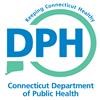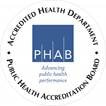It's Worth It! Newsletter
Fall 2022
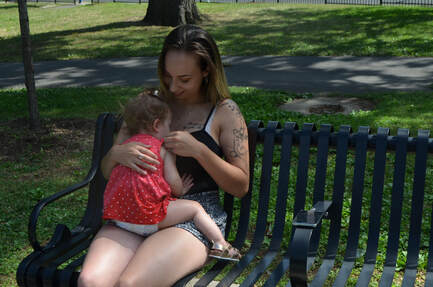
Welcome to the Fall 2022 edition of the Connecticut Department of Public Health's (DPH) Breastfeeding: It's Worth It! eNewsletter!
This eNewsletter is produced in collaboration with a variety of stakeholders with funding from the Centers for Disease Control and Prevention’s (CDC) State Physical Activity and Nutrition Program (SPAN). DPH is funded by SPAN to implement breastfeeding promotion and support activities in healthcare, communities and workplaces through 2023.
This eNewsletter is produced in collaboration with a variety of stakeholders with funding from the Centers for Disease Control and Prevention’s (CDC) State Physical Activity and Nutrition Program (SPAN). DPH is funded by SPAN to implement breastfeeding promotion and support activities in healthcare, communities and workplaces through 2023.
Connecticut Breastfeeding Awareness Month Celebrations
Did you host a Breastfeeding Month Celebration in August? Send us your photos, along with a signed Photo Release from everyone in the photo, and we'll post them on the It's Worth It website.
Spotlight on the Day Kimball Hospital WIC Program
The Day Kimball Hospital (DKH) WIC Program hosted an event for World Breastfeeding Week (WBW) at their local library. The librarian read stories to the kids and gave them a library tour, a local children’s book author sang songs and read her book aloud, and event participants connected with one another by sharing their birth and breastfeeding journeys. Participants expressed a desire to create a mom's get-together/support group, and make it a regular occurrence, which the DKH WIC hopes to implement soon. Participants also shared their gratitude to the DKH WIC program for helping them continue to breastfeed.
Staff from DKH WIC Program, DKH CEO Kyle Kramer and Dr. Marc Cerron, Director of Pediatrics, were interviewed by a local radio program to celebrate WBW. The interview highlighted the new peer breastfeeding program and the WIC IS MORE campaign. You can listen to the full interview here: DKH WIC WBW 2022 radio interview.
Paving the Way: Diversity in Lactation UPDATE
In 2022, Danielle Freeman, LPN, IBCLC, created a Connecticut International Board-Certified Lactation Consultant (IBCLC) mentee group, called "Paving the Way,” to assist individuals from traditionally underrepresented groups in pursuit of the IBCLC certification. Danielle is mentoring 14 individuals as they work to complete their IBCLC exam eligibility requirements. One mentee has taken the IBCLC exam this fall, two mentees will apply to take the exam in the Spring of 2023 and five more plan to apply for the exam later in 2023. All Paving the Way members are on the journey to IBCLC and are starting from different foundations. As Paving the Way members achieve the IBCLC credential they will continue to work together on sustainability and career advancement.
To further build capacity, Danielle is also making connections with potential IBCLC mentors and mentorship sites to help ensure those in the mentee group have access to qualified mentors and sites for supervised practice. Danielle is also working with SPAN partners to develop a mentor training slated for spring 2023. For more information about Paving the Way, or to join the mentee or mentor groups, contact Danielle Freeman at [email protected] or [email protected].
Did you host a Breastfeeding Month Celebration in August? Send us your photos, along with a signed Photo Release from everyone in the photo, and we'll post them on the It's Worth It website.
Spotlight on the Day Kimball Hospital WIC Program
The Day Kimball Hospital (DKH) WIC Program hosted an event for World Breastfeeding Week (WBW) at their local library. The librarian read stories to the kids and gave them a library tour, a local children’s book author sang songs and read her book aloud, and event participants connected with one another by sharing their birth and breastfeeding journeys. Participants expressed a desire to create a mom's get-together/support group, and make it a regular occurrence, which the DKH WIC hopes to implement soon. Participants also shared their gratitude to the DKH WIC program for helping them continue to breastfeed.
Staff from DKH WIC Program, DKH CEO Kyle Kramer and Dr. Marc Cerron, Director of Pediatrics, were interviewed by a local radio program to celebrate WBW. The interview highlighted the new peer breastfeeding program and the WIC IS MORE campaign. You can listen to the full interview here: DKH WIC WBW 2022 radio interview.
Paving the Way: Diversity in Lactation UPDATE
In 2022, Danielle Freeman, LPN, IBCLC, created a Connecticut International Board-Certified Lactation Consultant (IBCLC) mentee group, called "Paving the Way,” to assist individuals from traditionally underrepresented groups in pursuit of the IBCLC certification. Danielle is mentoring 14 individuals as they work to complete their IBCLC exam eligibility requirements. One mentee has taken the IBCLC exam this fall, two mentees will apply to take the exam in the Spring of 2023 and five more plan to apply for the exam later in 2023. All Paving the Way members are on the journey to IBCLC and are starting from different foundations. As Paving the Way members achieve the IBCLC credential they will continue to work together on sustainability and career advancement.
To further build capacity, Danielle is also making connections with potential IBCLC mentors and mentorship sites to help ensure those in the mentee group have access to qualified mentors and sites for supervised practice. Danielle is also working with SPAN partners to develop a mentor training slated for spring 2023. For more information about Paving the Way, or to join the mentee or mentor groups, contact Danielle Freeman at [email protected] or [email protected].
Healthcare
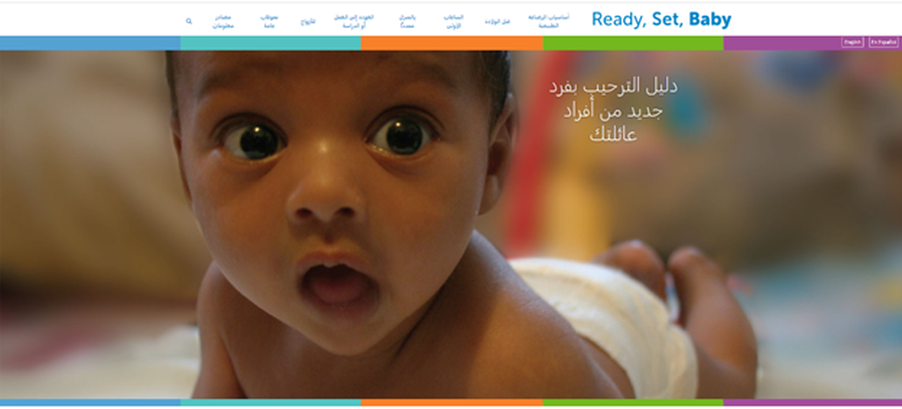
Updated Breastfeeding/Human Milk Feeding Guidelines
https://publications.aap.org/pediatrics/article-abstract/150/1/e2022057988/188347
In June, the American Academy of Pediatrics updated its Policy Statement on Breastfeeding and Use of Human Milk. See below for an excerpt from the revised Statement:
“Since the publication of the previous policy statement of the American Academy of Pediatrics on breastfeeding and the use of human milk, research and systematic reviews have continued to reinforce the conclusion that breastfeeding and human milk are the normative standards for infant feeding and nutrition (1). More than 80% of women initiate breastfeeding in the United States, and both federal and state laws protect a woman’s right to breastfeed as well as the right to breastfeed in public and to continue breastfeeding or to express milk in the workplace (2). With most women choosing to breastfeed, breastfeeding has been established as the cultural norm in the United States. Furthermore, breastfeeding, or the provision of human milk, should be considered the reference standard to which all forms of infant feeding are compared from a biological, medical, and scientific standpoint. This policy statement updates the recommendations regarding breastfeeding and serves as a reference for other AAP policy and publications that address breastfeeding and infant nutrition. An accompanying technical report3 provides the evidence and basis for the recommendations (3)."
1. Section on Breastfeeding. Breastfeeding and the use of human milk. Pediatrics. 2012;129(3):e827–e841
2. Centers for Disease Control and Prevention. National immunization survey. Available at: www.cdc.gov/breastfeeding/data/nis_data/index.htm.
3. Younger Meek J, Noble L; American Academy of Pediatrics, Section on Breastfeeding. Technical report: Breastfeeding and the use of human milk. Pediatrics. 2022, In press.
Does your NICU provide donor human milk? Would you like to start?
The Human Milk Banking Association recently hosted a webinar titled, "Implementing a Donor Milk Program: How to Get Started" on Tuesday, October 18, at 2 p.m. ET. Presenters Lindsay Groff, Mona Liza Hamlin, Lisa Stellwagen, and Kim Updegrove discussed guidelines to introduce and implement a donor milk program at a hospital. View the webinar recording here.
Medical Office Breastfeeding Training Available
DPH has partnered with the Connecticut Children's Medical Center, Educating Practices program, to offer the “Breastfeeding Basics'' training. This in-service training is available to medical offices that provide pediatric health care. Originally developed in 2019 in collaboration with Dr. Nancy Trout, the training has been updated with the most current AAP clinical guidelines, billing codes, and local lactation resources. This training is provided at no cost to the entire office team, including nurses, physicians, and administrative staff, to promote a team approach to practice change.
The training focuses on the following:
Offices interested in learning more or scheduling a training can contact the Educating Practices team at [email protected].
Monkey Pox: Where to get information
Monkey Pox infection in the United States among pregnant and human milk feeding people is relatively rare at this time. However, if you live in an area where there is an outbreak, or are among those in a high-risk population group, you may want to discuss your exposure and vaccination with your healthcare provider.
The Centers for Disease Control and Prevention has the most up-to-date information on Monkey Pox in the United States as well as considerations for people who are pregnant or human milk feeding.
You can also check the national MotherToBaby website for information related to Monkey Pox https://mothertobaby.org/fact-sheets/monkeypox/, or contact MotherToBaby CT: [email protected] or 860-679-6199.
Finally, in the most recent issue of Breastfeeding Medicine, Philip Anderson, PharmD, from the University of California, San Diego, published this article, Monkeypox Prevention and Treatment While Nursing. The article provides practical recommendations based on available science and guidance from the federal Centers for Disease Control and Prevention.
Ready, Set, Baby!
DPH, in partnership with the Carolina Global Breastfeeding Institute, developed Ready, Set, Baby! Online, available in English, Spanish, and Arabic languages to help inform families about breastfeeding. Health care providers who would like to support prenatal breastfeeding education are invited to share the website with patients and community partners.
https://publications.aap.org/pediatrics/article-abstract/150/1/e2022057988/188347
In June, the American Academy of Pediatrics updated its Policy Statement on Breastfeeding and Use of Human Milk. See below for an excerpt from the revised Statement:
“Since the publication of the previous policy statement of the American Academy of Pediatrics on breastfeeding and the use of human milk, research and systematic reviews have continued to reinforce the conclusion that breastfeeding and human milk are the normative standards for infant feeding and nutrition (1). More than 80% of women initiate breastfeeding in the United States, and both federal and state laws protect a woman’s right to breastfeed as well as the right to breastfeed in public and to continue breastfeeding or to express milk in the workplace (2). With most women choosing to breastfeed, breastfeeding has been established as the cultural norm in the United States. Furthermore, breastfeeding, or the provision of human milk, should be considered the reference standard to which all forms of infant feeding are compared from a biological, medical, and scientific standpoint. This policy statement updates the recommendations regarding breastfeeding and serves as a reference for other AAP policy and publications that address breastfeeding and infant nutrition. An accompanying technical report3 provides the evidence and basis for the recommendations (3)."
1. Section on Breastfeeding. Breastfeeding and the use of human milk. Pediatrics. 2012;129(3):e827–e841
2. Centers for Disease Control and Prevention. National immunization survey. Available at: www.cdc.gov/breastfeeding/data/nis_data/index.htm.
3. Younger Meek J, Noble L; American Academy of Pediatrics, Section on Breastfeeding. Technical report: Breastfeeding and the use of human milk. Pediatrics. 2022, In press.
Does your NICU provide donor human milk? Would you like to start?
The Human Milk Banking Association recently hosted a webinar titled, "Implementing a Donor Milk Program: How to Get Started" on Tuesday, October 18, at 2 p.m. ET. Presenters Lindsay Groff, Mona Liza Hamlin, Lisa Stellwagen, and Kim Updegrove discussed guidelines to introduce and implement a donor milk program at a hospital. View the webinar recording here.
Medical Office Breastfeeding Training Available
DPH has partnered with the Connecticut Children's Medical Center, Educating Practices program, to offer the “Breastfeeding Basics'' training. This in-service training is available to medical offices that provide pediatric health care. Originally developed in 2019 in collaboration with Dr. Nancy Trout, the training has been updated with the most current AAP clinical guidelines, billing codes, and local lactation resources. This training is provided at no cost to the entire office team, including nurses, physicians, and administrative staff, to promote a team approach to practice change.
The training focuses on the following:
- benefits of breastfeeding for the infant, mother, and society;
- critical role physicians play in promoting and protecting breastfeeding;
- early breastfeeding misinformation, challenges, and solutions;
- linking mothers to lactation support services in the community; and
- recommended breastfeeding practices and the criteria for becoming a Breastfeeding Friendly Office Practice
Offices interested in learning more or scheduling a training can contact the Educating Practices team at [email protected].
Monkey Pox: Where to get information
Monkey Pox infection in the United States among pregnant and human milk feeding people is relatively rare at this time. However, if you live in an area where there is an outbreak, or are among those in a high-risk population group, you may want to discuss your exposure and vaccination with your healthcare provider.
The Centers for Disease Control and Prevention has the most up-to-date information on Monkey Pox in the United States as well as considerations for people who are pregnant or human milk feeding.
You can also check the national MotherToBaby website for information related to Monkey Pox https://mothertobaby.org/fact-sheets/monkeypox/, or contact MotherToBaby CT: [email protected] or 860-679-6199.
Finally, in the most recent issue of Breastfeeding Medicine, Philip Anderson, PharmD, from the University of California, San Diego, published this article, Monkeypox Prevention and Treatment While Nursing. The article provides practical recommendations based on available science and guidance from the federal Centers for Disease Control and Prevention.
Ready, Set, Baby!
DPH, in partnership with the Carolina Global Breastfeeding Institute, developed Ready, Set, Baby! Online, available in English, Spanish, and Arabic languages to help inform families about breastfeeding. Health care providers who would like to support prenatal breastfeeding education are invited to share the website with patients and community partners.
Community
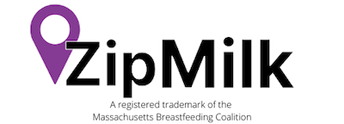
Infant Nutrition Security in the U.S.
Despite the restocking of infant formula on U.S. grocery shelves, the crisis of the formula shortage highlighted steps we could be taking in the United States to ensure all babies are adequately and safely nourished. In a blog post, USBC’s Deputy Director Amelia Psmythe Seger, writes: The catastrophic infant formula shortage demonstrates the value of this work and the need to build a robust infrastructure for infant nutrition security in the U.S. that holds all families in care. Read the full post including a link to the Joint Statement on Infant & Young Child Feeding in Emergencies in the U.S. context.
https://www.usbreastfeeding.org/usbc-news--blogs/the-four-pillars-of-infant-nutrition-security-in-the-united-states
ZipMilk - Find lactation help near you! For parents who are looking for a little help, enter a zip code and select the type of assistance needed. There are IBCLCs, free support groups, health professionals, and a variety of websites listed with a focus on breastfeeding support. www.zipmilk.org
Providers, don’t forget to sign up for Zipmilk! Fill out the quick form: https://www.zipmilk.org/providers/new.
Despite the restocking of infant formula on U.S. grocery shelves, the crisis of the formula shortage highlighted steps we could be taking in the United States to ensure all babies are adequately and safely nourished. In a blog post, USBC’s Deputy Director Amelia Psmythe Seger, writes: The catastrophic infant formula shortage demonstrates the value of this work and the need to build a robust infrastructure for infant nutrition security in the U.S. that holds all families in care. Read the full post including a link to the Joint Statement on Infant & Young Child Feeding in Emergencies in the U.S. context.
https://www.usbreastfeeding.org/usbc-news--blogs/the-four-pillars-of-infant-nutrition-security-in-the-united-states
ZipMilk - Find lactation help near you! For parents who are looking for a little help, enter a zip code and select the type of assistance needed. There are IBCLCs, free support groups, health professionals, and a variety of websites listed with a focus on breastfeeding support. www.zipmilk.org
Providers, don’t forget to sign up for Zipmilk! Fill out the quick form: https://www.zipmilk.org/providers/new.
Share Your Story
We want to hear from everyone who has a breastfeeding (It’s Worth It!) story: Parents (moms, dads, and those who identify as either or more), grandparents, health providers, clinical professionals, employers and policy makers are all invited to share. Even though many moms and babies can face breastfeeding challenges, with community support you can overcome those challenges and thrive. Like many moms we have talked to over the years, breastfeeding is not always easy, but It’s Worth It! Your personal story can make a difference to another family. We are in this together. There is a community of families in Connecticut who can encourage each other. Submit your stories here.
We want to hear from everyone who has a breastfeeding (It’s Worth It!) story: Parents (moms, dads, and those who identify as either or more), grandparents, health providers, clinical professionals, employers and policy makers are all invited to share. Even though many moms and babies can face breastfeeding challenges, with community support you can overcome those challenges and thrive. Like many moms we have talked to over the years, breastfeeding is not always easy, but It’s Worth It! Your personal story can make a difference to another family. We are in this together. There is a community of families in Connecticut who can encourage each other. Submit your stories here.
Worksites and Child Care
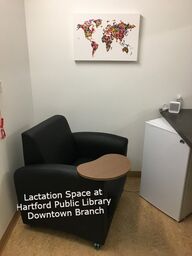
Become a Breastfeeding-Friendly Worksite!
Is your work place supportive of breastfeeding employees? Want to be recognized as a Breastfeeding Friendly Worksite? It’s easy! Apply here: Breastfeeding Friendly Worksite! The online application is easier than you may think. Contact the Connecticut Breastfeeding Coalition if you have any questions at [email protected], 203-699-MILK (6455).
Become a Breastfeeding-Friendly Child Care Provider!
Child care providers are a much needed support to human milk feeding families. Does your child care provider go above and beyond? We would love to recognize them with a Breastfeeding Friendly Child Care Recognition. There’s support available for providers who are interested through the Go NAPSACC partnership. Providers can get training and technical assistance support from partners at the RESC Alliance and Connecticut Breastfeeding Coalition, and receive educational materials for their child care program. Providers with employees can also be recognized as a Breastfeeding Friendly Worksite through the same application process. Apply here: Breastfeeding Friendly Child Care.
Is your work place supportive of breastfeeding employees? Want to be recognized as a Breastfeeding Friendly Worksite? It’s easy! Apply here: Breastfeeding Friendly Worksite! The online application is easier than you may think. Contact the Connecticut Breastfeeding Coalition if you have any questions at [email protected], 203-699-MILK (6455).
Become a Breastfeeding-Friendly Child Care Provider!
Child care providers are a much needed support to human milk feeding families. Does your child care provider go above and beyond? We would love to recognize them with a Breastfeeding Friendly Child Care Recognition. There’s support available for providers who are interested through the Go NAPSACC partnership. Providers can get training and technical assistance support from partners at the RESC Alliance and Connecticut Breastfeeding Coalition, and receive educational materials for their child care program. Providers with employees can also be recognized as a Breastfeeding Friendly Worksite through the same application process. Apply here: Breastfeeding Friendly Child Care.
Congratulations to Happy Times Daycare of Terryville,
our newest Breastfeeding Friendly Child Care Designee!
our newest Breastfeeding Friendly Child Care Designee!
All currently recognized worksites and child care providers can be found on the Connecticut Breastfeeding Coalition website: www.breastfeedingct.org/breastfeeding-friendly.html (scroll down to the map)
Research Articles & Resources
Journal Articles
The First 1000 Days: The American Journal of Public Health, in partnership with 1,000 Days, has released 3 papers from the forthcoming open access special issue on the importance of the first 1,000 days, from pregnancy through to the child’s second birthday, on health and wellbeing. This special issue focuses on research and scholarship specific to the United States. Information on the series can also be found directly from 1000 Days: https://thousanddays.org/updates/ajph-series/.
Breastfeeding and Mental Health - Cureus Journal of Medical Science: "Mental Health Benefits of Breastfeeding: A Literature Review"
COVID 19 Boosters for pregnant and breastfeeding people: JAMA Network Open: Analysis of Vaccine Reactions After COVID-19 Vaccine Booster Doses Among Pregnant and Lactating Individuals
Many thanks to the USBC Weekly Wire newsletter for alerting us to these articles. Subscribe to USBC Communications here: https://web.usbreastfeeding.org/atlas/forms/general/9
CERPs, CEUs and Other Education Resources
The Connecticut Breastfeeding Coalition maintains a list of free and low-cost continuing education opportunities for lactation professionals. These webinars and courses are available on-demand and can be completed online in the comfort of your home or office. A variety of community and clinical topics are available. Please visit https://www.breastfeedingct.org/continuing-education.html.
The First 1000 Days: The American Journal of Public Health, in partnership with 1,000 Days, has released 3 papers from the forthcoming open access special issue on the importance of the first 1,000 days, from pregnancy through to the child’s second birthday, on health and wellbeing. This special issue focuses on research and scholarship specific to the United States. Information on the series can also be found directly from 1000 Days: https://thousanddays.org/updates/ajph-series/.
Breastfeeding and Mental Health - Cureus Journal of Medical Science: "Mental Health Benefits of Breastfeeding: A Literature Review"
COVID 19 Boosters for pregnant and breastfeeding people: JAMA Network Open: Analysis of Vaccine Reactions After COVID-19 Vaccine Booster Doses Among Pregnant and Lactating Individuals
Many thanks to the USBC Weekly Wire newsletter for alerting us to these articles. Subscribe to USBC Communications here: https://web.usbreastfeeding.org/atlas/forms/general/9
CERPs, CEUs and Other Education Resources
The Connecticut Breastfeeding Coalition maintains a list of free and low-cost continuing education opportunities for lactation professionals. These webinars and courses are available on-demand and can be completed online in the comfort of your home or office. A variety of community and clinical topics are available. Please visit https://www.breastfeedingct.org/continuing-education.html.
If you have received this link from a friend or colleague, please subscribe below:
The Connecticut State Physical Activity and Nutrition Program is made possible with funding from the Centers for Disease Control and Prevention (CDC). The views expressed in this eBulletin do not necessarily reflect the official policies of the CDC or imply endorsement by the U.S. Government. Learn more about the State Physical Activity and Nutrition Program at https://www.cdc.gov/nccdphp/dnpao/.


